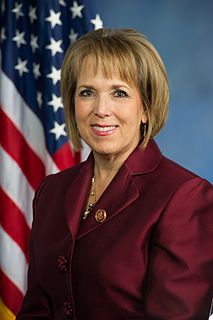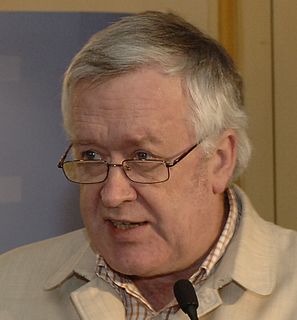A Quote by London Breed
Both San Francisco and New York are taking bold, sweeping action to reduce emissions, make our infrastructure more resilient and improve the health of our people. We are also leading the charge against those who continue to deny the existence of climate change.
Related Quotes
Any objective look at what science has to say about climate change ought to be sufficient to persuade reasonable people that the climate is changing and that humans are responsible for a substantial part of that - and that these changes are doing harm and will continue to do more harm unless we start to reduce our emissions.
I would stay two years in San Francisco, then move to New York in the summer of 1991, for the love of a man who lived there. When I arrived in New York, I had a job waiting for me, courtesy of a bookstore I'd worked at in San Francisco, A Different Light. They had a New York store as well, and arranged an employee transfer.
On Earth Day I made a commitment to reduce our emissions of greenhouse gases to 1990 levels by the year 2000. And I asked for a blueprint on how to achieve this goal. In concert with all other nations, we simply must halt global warming. It is a threat to our health, to our ecology, and to our economy. I know that the precise magnitude and patterns of climate change cannot be fully predicted. But global warming clearly is a growing, long-term threat with profound consequences. And make no mistake about it, it will take decades to reverse.
Other ways of looking at the environmental or climate change stuff is to frame it in the context that it is simultaneously a public health issue. One out of eight premature deaths worldwide happens because of air pollution. The worst power plant in America kills 278 people a year and causes 445 heart attacks. So, when we improve air quality we improve our lives, and at the same time we improve the climate as well. We must see climate policy from this perspective and not as an abstract threat that may threaten our survival in 100 years.
It is in fact necessary to reduce CO2 emissions. There is no reason why we shouldn't spend our vacations on (the North Sea island of) Sylt instead of in the Seychelles, or drive more economical cars - for the sake of preserving increasingly scarce resources if nothing else. But that won't enable us to stop climate change. As long as China, India and the United States continue the way they have been, what we Germans do is more or less irrelevant.

































